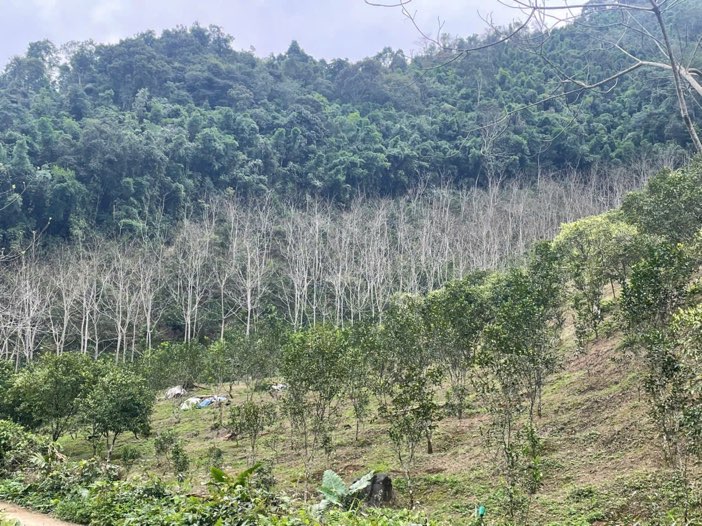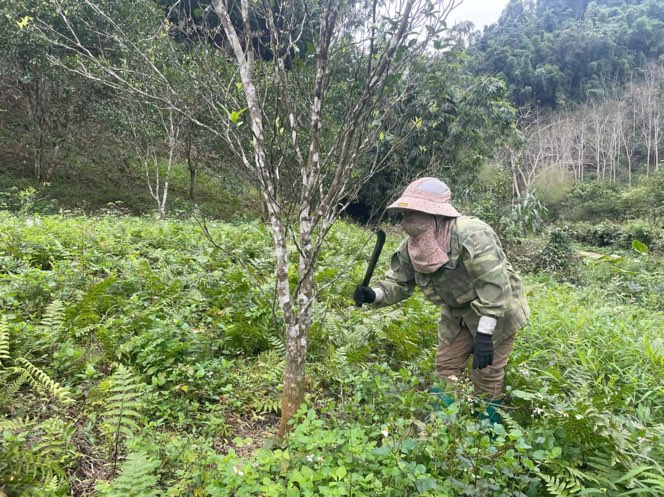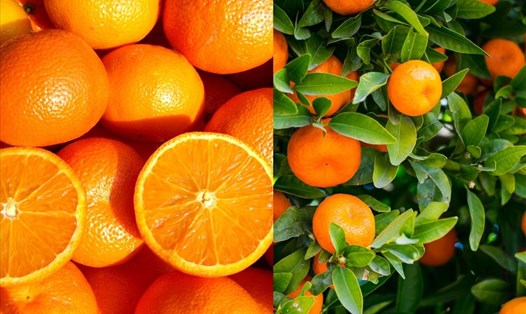The straight rows of glue have replaced the fruit-laden tangerine garden. Mr. Cao Xuan Lang slowly walked through the remaining old tangerine trees, reaching the rough trunk with his hands.
A few years ago, this garden produced dozens of tons of fruit each crop, traders came to the place to buy, and busily brought in and out the tangerine. Now, it's all in memory.
Mr. Lang recalled the harvest days, from early morning, the whole family was busy harvesting. The tangerines are full of large trays, making buyers and sellers bustling.
"There are years when the price is up to 15,000 VND/kg, a 2-hectare tangerine garden earns hundreds of millions of VND. Thanks to that, our people have the conditions to renovate their houses, buy and repair amenities, and have a better life," Mr. Lang added.

But then the fertile tangerine gardens began to wither. Around 2020, the trees were old, the pests were sick, and the productivity decreased sharply.
Small tangerines with rough shells and stems that no one wants to buy. Tangerine prices have dropped to only 6,000 - 8,000 VND/kg, many households are no longer interested in investing in care.
Not far away, the 5ha tangerine garden of Mr. Duong Van Sy, Na Dinh village, Quang Thuan commune (Bach Thong, Bac Kan) was in a similar situation. In the years when tangerines were still priced, each harvest season, his family's garden earned hundreds of millions of VND.
Mr. Sy's tangerine garden now has only nearly 2 hectares left, because it has only been planted for a few years. Old tangerine trees have been cut down, replaced with forestry tree beds that are growing.
Not only Mr. Lang, Mr. Sy, but hundreds of households in Quang Thuan have also gradually given up tangerine trees. In 2012 - 2015, the whole commune had more than 600 hectares of tangerines, the largest fruit growing area in Bac Kan. But up to now, the area is only about 200 hectares, and the output has also decreased sharply.

The main reason is that tangerines have reached a degeneration cycle after more than 20 years of exploitation. The land is colorful, with many pests and diseases, large investment costs but low profits. In addition, the weather is getting harsher, the prolonged heat has seriously affected many tangerine gardens.
Mr. Loc Huu Nhat - Chairman of Quang Thuan Commune People's Committee said that the decline in orange and tangerine acreage is not only due to old crops but also due to a lack of land funds and human resources.
Many young workers leave their hometowns to find jobs in industrial parks, while growing tangerines requires meticulous care and high costs.
Currently, local authorities are encouraging people to renovate old tangerine gardens and rotate crops to restore the land.
Some models of growing tangerines in an organic way, reducing pesticides have been tested to improve fruit quality. However, output is still a difficult problem.
According to the leader of Quang Thuan commune, if there is technical support, new varieties and a stable consumption market, people can maintain tangerines instead of switching to other crops.
However, when the market is still dependent on traders and there are no sustainable connections with businesses, recovery of the tangerine area is still very difficult.











